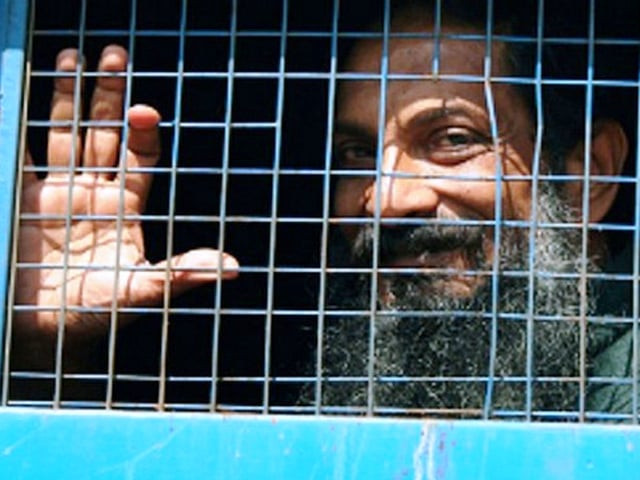If thinking disagreeing with the the state is criminal then I am criminal.
If trying to understand a cause, that affects the poor and deprived section of the society is sedition then I fear someday I might be meeting Binayakan Sen's fate.
Ever since Dr Binayak Sen has been convicted for sedition by a Lower Court in Raipur, the civil society and the right thinking citizens of India are living in fear of prosecution by the state which does not want to breed dissent. Civil society, which is the conscience keeper of the nation, is now at the receiving end of the system which wants to protect corrupt and communal elements in the society and prosecute its concerned citizens.
Sen is a doctor with a degree from one of the top most medical colleges in India, who could have earned in millions per month had he joined one of the modern five star hospitals if he had not listened to the call of his conscience and worked without any reward and recognition among the poorest of poor in remote inhospitable villages treating the people who are still away from the reach of any sort of modernity.
Past victims of the sedition law
In reward reward for this selfless service he has been awarded jail for life - a conviction under a law enacted by colonial rulers 140 years ago in 1870. The English used to harass our freedom fighters by using this law against those who would raise their voice against the colonial rule. Among the victims of this law were Bal Gangadhar Tilak and Mahatma Gandhi.
Jawahar Lal Nehru had described the Sedition Act as “highly objectionable and obnoxious” and said that it “should have no place both for practical and historical reasons and sooner we get rid of it the better.”
But, the law instead of getting struck down is being used against the citizen of free and independent India by its own government.
Is Dr Binayak Sen guilty?
Sen tried to help the hapless and neglected section of the society which was beyond the radar of the Government of India for the last sixty years. He tried to use his knowledge of medical science for the treatment of those in remote forest areas where there is no primary health centre. He challenged acts of the Chhatisgarh government, notably the formation of a reactionary vigilante group, Salwa Judum, which was meant to kill the people who supported and were protected by the Maoist rebellion.
These acts of Dr Sen are termed “rajdroha” or sedition by the Second Additional District and Session Judge V P Varma at Raipur, Chhatisgarh. Among the evidence against the doctor is an attempt to pass on three letters written by a jailed Maoist leader to some unknown people in Kolkata, and his help in opening bank accounts for some “hardcore Maoists.”
The British government charged Bal Gangadhar Tilak for sedition in 1897 for giving inflammatory speeches that led to the killing of two British officers. He was charged under the Sedition Act for two more times and in one instance Tilak’s case was successfully fought by Muhammad Ali Jinnah in 1916.
Writing in Kafila, a political and media blog, Banglore based lawyer Siddharth Narrain says :
“The fundamental moral question that Tilak raised was whether his trials constituted sedition of the people against the British Indian Government (Rajdroha) or of the Indian government against the Indian people (Deshdroha)”.
Condemnations for the judgment
Nobel laureate Amartya Sen also expressed outrage at the conviction of Dr Binayak Sen and termed it a "huge perversion of our system of justice, and particularly of the laws concerning sedition”.
Commenting on the judgment, a former Chief Justice of the Delhi High Court, Rajendra Sachhar, says that
“there can’t be a greater nonsensical judgment than this. I am ashamed to belong to a judiciary that delivered such a ridiculous judgment...today it is Sen. It could be anybody else tomorrow”.
The fear is not unfounded. On November 27, 2010 last years the Delhi High Court acting on a complaint of an individual ordered the registration of an FIR against hard line Hurriyat leader Syed Ali Shah Geelani, writer Arundhati Roy and five others for allegedly making anti-India speeches in a seminar in New Delhi on a complaint filed by an individual.
The whole episode seems comical and bizarre for a country that boasts to be the largest democracy in the world with fundamental rights of freedom of expression and freedom of movement.
The reaction, to Dr Sen's conviction, is a testimony to the fact that right thinking people are disappointed by the verdict.
Amnesty International (AI) calls the judgment a violation of “international fair trial standards.”
India: The world’s largest democracy?
How are we different from communist China which has jailed its dissident leader, Liu Xiaobo for talking about democracy in the country?
Democratic dissent defines India and if that right is being suppressed, then what kind of identity are we aiming for? What kind of country do we want to be?
An article in Times of India says:
“the judgment against Sen is worrisome as it shows the extent to which the Indian legal system can trample on human rights even in the normal circumstances.”
The ramification of the Binayak Sen verdict is the danger it poses to dissenting voices in India and how legal remedies available are being compromised in the name of national security.



COMMENTS
Comments are moderated and generally will be posted if they are on-topic and not abusive.
For more information, please see our Comments FAQ